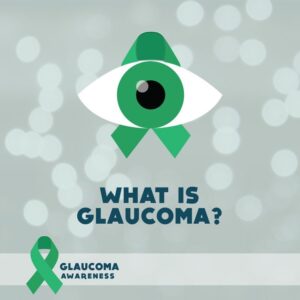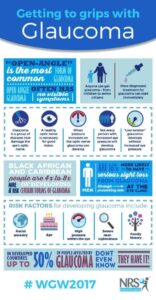World Glaucoma Week 12th – 18th March

WORLD GLAUCOMA WEEK 12th – 18th March.

WHAT IS GLAUCOMA?
Word Glaucoma week is awareness created to remind the world about glaucoma and its effect. It is a leading cause of blindness for people over 60 years old. But blindness from glaucoma can often be prevented with early treatment.
Glaucoma is a condition that damages your eye‘s optic nerve, and it gets worse over time. It’s often linked to a buildup of pressure inside your eye. Glaucoma tends to run in families. You usually don’t get it until later in life.
There are two main types of glaucoma:
Open-angle glaucoma — The most common form of glaucoma, this type is caused by damage to the filter in the eye’s drainage canals
Angle-closure glaucoma — This type of glaucoma is caused by a rapid blockage of the eye’s drainage canals due to a closed or narrow angle between the iris and cornea where the filter is located.
Neovascular glaucoma — A type of glaucoma associated with poorly controlled diabetes and other conditions that damage the blood vessels in the body.
World Glaucoma Week: Glaucoma Causes
However, Many factors lead to glaucoma. While increased eye pressure is the only known modifiable risk factor known at this time, is it not a cause. Glaucoma can also develop with normal eye pressure.
Glaucoma Risk Factors
However Anyone can develop glaucoma. However, some people are at higher risk than others. Risk factors for glaucoma include:
- Race. Glaucoma is the leading cause of blindness for people of African descent.
- Age. People age 60 and older are more at risk for developing glaucoma.
- Family history. People with a family history of glaucoma are more likely to develop the disease, especially those with a sibling who has the condition.
- High fluid pressure inside the eyes. People with high fluid pressure inside the eyes are at an increased risk.
- Decreased corneal thickness. People with a thinner cornea are at greater risk of glaucoma.

Glaucoma Symptoms
However, Most people with glaucoma do not notice symptoms until they begin to lose eyesight.
Each person may experience symptoms differently, which include:
- Blurred or narrowed field of vision
- Severe pain in the eyes
- Seeing halos or “rainbows” around lights
- Nausea
- Vomiting
- Headache




